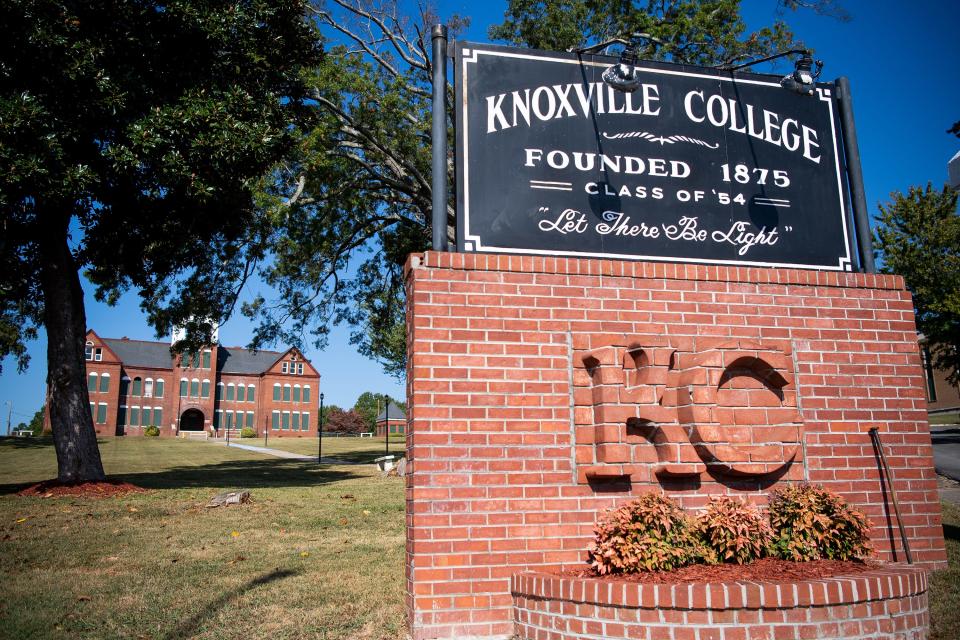Knoxville College was created to educate Black teachers | Opinion
In 2025 Knoxville College will celebrate its 150th anniversary. Founded in 1875, it was created with the merger of the 1863 McKee School in Nashville and the 1864 Creswell School in Knoxville. Both schools were operated by the Presbyterian Church of North America. In 1872 the church decided that making a teachers' college of the two schools would be a more effective way of educating Black students.
Both the McKee School and the Creswell School had difficulty operating during their dozen or so years of existence. In Nashville, the Rev. Joseph McKee was hated for his teaching of Black students, He had to defend himself in sword fights. In Knoxville, Robert Creswell found his property destroyed and had to appeal to Mayor William Gannaway "Parson" Brownlow for protection.
Yet the Presbyterian committee searching for a place to form their new school believed Knoxville was the best site for it. They had looked at sites in the Carolinas, Mississippi, Georgia and Alabama before deciding on Knoxville, where they purchased 6 acres of land to get started. Initially the college operated in a building in East Knoxville until the the first building on the current campus opened Sept. 6, 1876.

Since the college opened just 10 years after slavery, there were few Black people ready to go to college. In fact, most had never seen a grade school classroom. From its inception, Knoxville College operated a grade school and a high school department to prepare students for college. It graduated its first two college students in 1883. It discontinued the grade school department in 1921 and the high school department in 1931.
Knoxville College not only taught classical subjects, but also operated a farm with pigs, cattle and chickens and grew crops so students could train for that industry. Crops that were not used in the dining room were sold on the local market. In the Industrial Department, students learned to make brooms, did woodworking and build wagons. They made bricks and helped build all of the older building on campus.
Sign up for our newsletter: Read compelling columns by Black writers from across Tennessee.
Every student was required to have a job on campus regardless of his ability to pay. That kept operating expenses as low as possible. Students who did not want to work were not admitted.
By the 1940s the original 6 acres had grown to 100. The college had another 25 acres of valuable timberland in Blount County where they felled the trees to erect the campus buildings.
In 1891 KC had signed a contract with the University of Tennessee to train students who were not admitted to UT. It paid the salaries of two professors and a foreman in the Industrial Department. In 1892 the Freedmen's Bureau erected the Mechanical/Industrial Building, which had facilities for teaching carpentry, blacksmithing and other trades.
Eliza B. Wallace, who had taught at the college since 1877, wanted to establish a nurse training program but could not find the funds. When she died in 1897 she left money in her will to help build the Knoxville College Hospital, which opened in 1907 with a nurse training program. The hospital was for the 250 students and the general public. It gave Black physicians a modern place to practice. It closed in 1926.
During its first 43 years of existence Knoxville College had only two presidents. Although they had major problems and trying times, they never waivered from their mission. Three major buildings were destroyed by fire, epidemics took their toll, and finances were not always available. But their dedicated leadership kept the doors open and provided for the needs of the students.
Robert J. Booker is a freelance writer and former executive director of the Beck Cultural Exchange Center. He may be reached at 865-546-1576.
This article originally appeared on Knoxville News Sentinel: Opinion: Knoxville College was created to educate Black teachers

